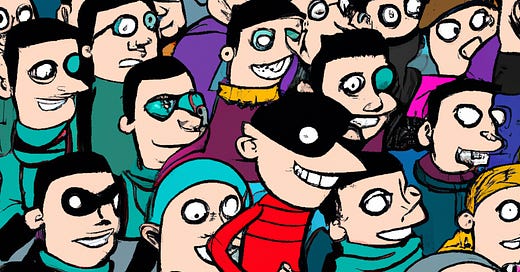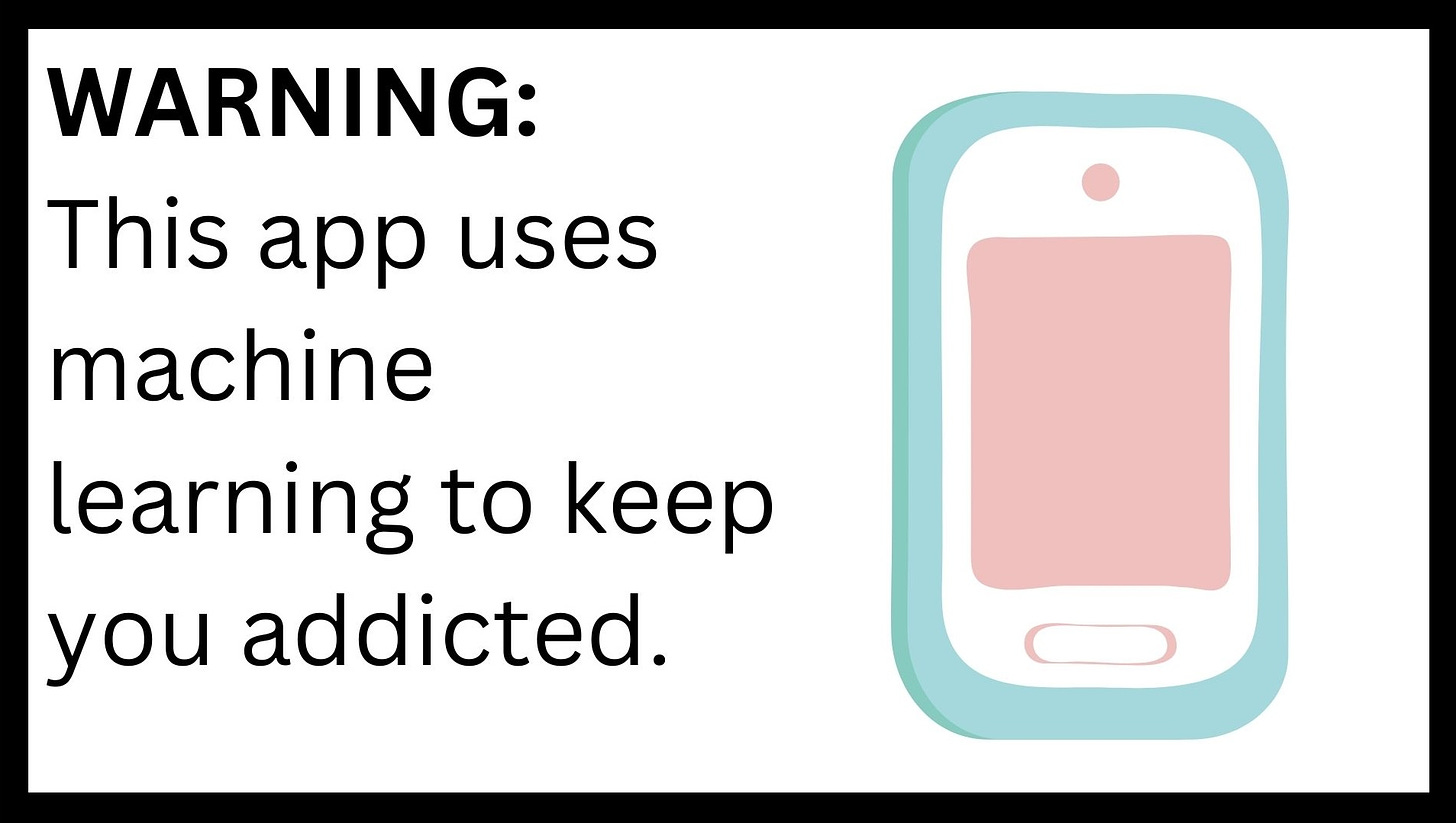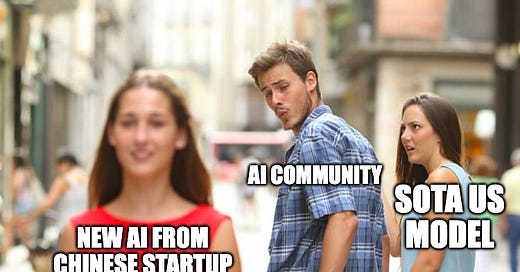
The Attention Thief: Machine Learning as a Monetization Weapon
How your greatest asset is silently stolen by technology every day
“How long have they been playing together like that?”
I looked up from my phone. My wife was standing in front of me and my three daughters laughing and playing together. She had just strapped on two newborns and made the trek upstairs to spend time with us and I couldn’t answer her question.
After my daughters had started playing independently, I did what any parent would do: I relaxed and took some time to myself. Naturally, I pulled out my phone and began mindlessly scrolling. It took my wife journeying upstairs with our babies to unlock my attention from my phone so I didn’t miss this time with my kids. If if weren’t for my wife, I would have let technology steal that beautiful moment from me.
A new monetization scheme
For decades technology companies have been coming up with new business models to maximize their profits. I don’t fault this because it’s the goal of Capitalism; but what happens when this drive for profits becomes a negative for the consumer?
The following methods are frequently used:
one time payments
subscription-based payments
serving ads to the end user and making advertisers pay
a “freemium” service that combines the last two
None of these methods are inherently predatory, but none of these methods are perfect either. That’s why we see companies trying to combine as many as they can and users complain about the obvious money grab. Consumers understand these monetary schemes and know how to avoid them. Do you know what most consumers don’t understand? Machine learning.
Instead of playing with the monetization methods above, a machine learning algorithm can more effectively monetize by targeting one thing: a user’s attention. Instead of optimizing a user experience for the monetization methods above, a machine learning algorithm optimizes for just one thing: keeping a user on a platform. Have you ever started scrolling social media on your phone late at night and suddenly realized a few hours had passed? That’s an algorithm working on you.

Why is this so effective?
This method doesn’t focus on how it can monetize you. It focuses on how it can own you. It turns out, it’s much easier to do everything to keep you on a platform than for that platform to figure out creative ways to make money off of you. If you spend enough time using a product, you’ll make the company money.
Here are some simple examples of how this method is used:
Recommendation systems. Think online shopping. Have you ever finished shopping for what you need, seen a recommendation for something you might want, and continued shopping? It’s almost like these websites are telling you what you should be shopping for.
Social feeds. You might think that next post on your social feed is fed to you because it’s the post you’re most interested in, right? Nope. That’s the post (or ad) the company feels will most likely keep you scrolling.
Video games. Call of Duty created a matchmaking algorithm that alters the multiplayer experience to keep you playing. The algorithm doesn’t optimize for player enjoyment — it optimizes for player engagement. If it recognizes that you tend to play a few more games if you lose 5 in a row but win 1 decisively afterward, it’ll make that happen.
The entire user experience is now designed around stealing and keeping your attention. So here’s the question: Is this a predatory business practice?
Is this predatory?
Initially, I didn’t see an issue with this. I figured people were enjoying the platforms so what was the harm with nudging them to enjoy it a little longer? But I think the answer to this question is in how the algorithms are designed. They aren’t optimized to maximize your enjoyment— they’re specifically optimized to maximize your time spent focused on their product. In other words, the algorithm is used to build an addiction.
This is being done while the world is facing an addiction pandemic. Everyone is addicted to their phones. People are participating in “social media fasts” just to take their lives back. Everyone blames themselves for their addiction when these algorithms are designed to create an addiction and use it for a company’s gain without regard for the health of users.
It reminds me of tobacco companies. People were hopelessly addicted to tobacco for over a century before any action was taken. How long before we realize there’s an issue this time? Maybe we need to add a banner to the app store for apps using these algorithms: “Caution: This App May Be Hazardous to Your Health”.
But maybe I’m wrong. Let me know what you think.
Why does this matter to you?
I argue your greatest asset is your attention. Where your attention is focused is what your life becomes. I’ve seen arguments for money, time, and energy all being a person’s most valuable asset, but all of these are dictated by your attention. Even inattentive time spent on a task usually isn’t productive. Your attention is incredibly valuable: there’s a reason it’s called paying attention.
Just like your time, your attention is limited. Don’t let these companies waste your attention for their benefit.
What can you do?
There are two practices I employ to maintain my attention:
Be mindful of what you’re looking at on your phone and when you’re using it. This is my biggest attention-sink. I like to leave it in another room when I don’t want to use it.
Use screen time apps to make your interactions with your devices healthy. If you aren’t regularly reviewing your screen time and making adjustments based on how you want to be using your device, you’re letting your tech dictate how you spend your time instead of dictating how you use your tech.
If you have tips for how you maintain a healthy relationship with your technology, leave a comment below.
Last week on Society’s Backend
Join the community
Make sure you’re subscribed (it’s free!) to chat with other readers. A subscriber chat is coming soon.
Connect with me
I love writing, but I love conversing about these topics even more! Connect with me on LinkedIn, Twitter/X, and YouTube.
Here’s another newsletter my wife and I are writing together:
As a thank you for reading to the very end, here’s half off a subscription for Society’s Backend forever.


















